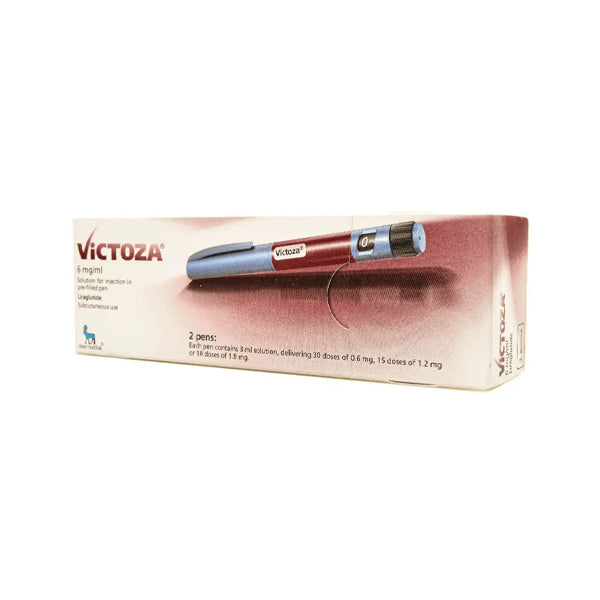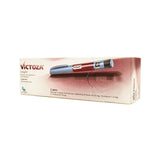 skin lightening
skin lightening
 Skin moisturizers & nourishers
Skin moisturizers & nourishers
 Korean skin
Korean skin
 sun protection
sun protection
 Facelift and wrinkle removal
Facelift and wrinkle removal
 Stretch mark products
Stretch mark products
 skin care soap
skin care soap
 Skin tone and dark spots
Skin tone and dark spots
 Eye care
Eye care
 Derma roller
Derma roller
 Blackhead removal products
Blackhead removal products
 Facial washes and toners
Facial washes and toners
 Treatment of scars
Treatment of scars
 Professional Products
Professional Products
 Skin care devices
Skin care devices
 Masks
Masks
 Sanding
Sanding
 Skin and hair oils
Skin and hair oils
 Nail strengtheners
Nail strengtheners
 lip plumpers
lip plumpers
 Tanning products
Tanning products
 Skin abrasions and inflammation
Skin abrasions and inflammation
 dark circles
dark circles
 Natural Moroccan soap
Natural Moroccan soap
 nail care products
nail care products
 scrub
scrub
 foot care
foot care
 Vitamins and nutritional supplements
Vitamins and nutritional supplements
 Vitamins and supplements for skin and hair
Vitamins and supplements for skin and hair
 Vitamins and nutritional supplements for women
Vitamins and nutritional supplements for women
 Fertility and reproductive products
Fertility and reproductive products
 Immunity support
Immunity support
 Herbal pharmacy and natural products
Herbal pharmacy and natural products
 Children's vitamins
Children's vitamins
 Energy and vitality products
Energy and vitality products
 Diabetic vitamins
Diabetic vitamins
 Heart and circulatory support products
Heart and circulatory support products
 Sidalih Global
Sidalih Global
 Vitamins and tonics for men
Vitamins and tonics for men
 Gastric sleeve vitamins
Gastric sleeve vitamins
 Diet and fitness
Diet and fitness
 Helping to sleep
Helping to sleep
 Bone and muscle health
Bone and muscle health
 Sports Nutrition
Sports Nutrition
 Eye vitamins
Eye vitamins
 Mood Boost
Mood Boost
 Brain Health Vitamins
Brain Health Vitamins
 Probiotics and Prebiotics
Probiotics and Prebiotics
 Omega-3
Omega-3
 Toothpastes
Toothpastes
 Teeth whitening products
Teeth whitening products
 Bath bombs and natural soap
Bath bombs and natural soap
 Hand soap
Hand soap
 Shower loofah
Shower loofah
 Sterile wipes
Sterile wipes
 Shower gels
Shower gels
 Massage oils
Massage oils
 Oral health care
Oral health care
 Cosmetic supplies
Cosmetic supplies
 First aid
First aid
 Lip care
Lip care
 Bath salts
Bath salts
 Infection prevention
Infection prevention
 Gags
Gags
 Toothbrushes
Toothbrushes
 Mouthwashes
Mouthwashes
 Denture care
Denture care
 Cleaning between the teeth
Cleaning between the teeth
 Foundation
Foundation
 Lips
Lips
 Lntoxicating
Lntoxicating
 Light
Light
 Blush
Blush
 Powder
Powder
 Medical makeup
Medical makeup
 Primer
Primer
 Eyebrows
Eyebrows
 Concealer
Concealer
 Eye shadows
Eye shadows
 specific eyeliner
specific eyeliner
 BB and CC creams
BB and CC creams
 Lenses and accessories
Lenses and accessories
 Lens solutions
Lens solutions
 Makeup Fixers
Makeup Fixers
 Make-up removers
Make-up removers
 Eyelash extensions
Eyelash extensions
 Nail polish removers
Nail polish removers
 Nails and accessories
Nails and accessories
 Brushes and accessories
Brushes and accessories
 Eyelashes and accessories
Eyelashes and accessories
 Cotton
Cotton
 Nail polish
Nail polish
 Natural and organic lunch
Natural and organic lunch
 Healthy Baking Supplies
Healthy Baking Supplies
 Natural Honey
Natural Honey
 Butter & Spread Creams
Butter & Spread Creams
 Healthy and organic soups
Healthy and organic soups
 Healthy and organic salt
Healthy and organic salt
 Organic rice
Organic rice
 Natural Beverage
Natural Beverage
 Natural sugar & alternative sweeteners
Natural sugar & alternative sweeteners
 Dried Fruits
Dried Fruits
 Keto products
Keto products
 Grain seeds and legumes
Grain seeds and legumes
 Organic Vinegar
Organic Vinegar
 Natural tea and herbs
Natural tea and herbs
 Healthy and organic pasta
Healthy and organic pasta
 Breakfast Cereal
Breakfast Cereal
 Natural spices and herbs
Natural spices and herbs
 Snacks
Snacks
 Organic sauces
Organic sauces
 Organic and Healthy Nannies
Organic and Healthy Nannies
 Pain killers
Pain killers
 Smoking cessation products
Smoking cessation products
 contraception
contraception
 Emergency & Fluid therapy medication
Emergency & Fluid therapy medication
 Anemia
Anemia
 vaginal infections
vaginal infections
 diaper rash
diaper rash
 Fever medication
Fever medication
 haemorrhoids
haemorrhoids
 Anti coagulants
Anti coagulants
 Topical anti fungal
Topical anti fungal
 acne treatment
acne treatment
 Psoriasis
Psoriasis
 Skin medications
Skin medications
 Thyroid treatment
Thyroid treatment
 Prostate treatment
Prostate treatment
 Eczema
Eczema
 Water retention
Water retention
 Burn treatment
Burn treatment
 Anti depressants
Anti depressants
 Anti anxiety
Anti anxiety
 Heart rate regulator
Heart rate regulator
 Liver medication
Liver medication
 Anti drowsiness
Anti drowsiness
 Anti bleeding
Anti bleeding
 Anti viral
Anti viral
 Bone and muscle medications
Bone and muscle medications
 Urinary tract medications
Urinary tract medications
 Pressure gauges
Pressure gauges
 Diabetes meters
Diabetes meters
 Diabetic test strips
Diabetic test strips
 Thermometers
Thermometers
 Weight measuring devices
Weight measuring devices
 Elderly diapers
Elderly diapers
 Diabetic supplies
Diabetic supplies
 Medical devices and supplies
Medical devices and supplies
 Nebulizer devices
Nebulizer devices
 Pulse Oximeters
Pulse Oximeters
 Tablet packages and crumbs
Tablet packages and crumbs
 Massage devices
Massage devices
 Near and languished
Near and languished
 Girdles
Girdles
 Pillow and neck pillow
Pillow and neck pillow
 Medical Headphones
Medical Headphones
 Medical Shoes
Medical Shoes
 Bathroom Chairs
Bathroom Chairs
 Medical Beds
Medical Beds
 Manual Chairs
Manual Chairs
 Electric Chairs
Electric Chairs
 Taking care of sensitive areas
Taking care of sensitive areas
 Lightening sensitive areas
Lightening sensitive areas
 Depilatories
Depilatories
 Face and body blades
Face and body blades
 Pregnancy and fertility detectors
Pregnancy and fertility detectors
 Hair removal devices and accessories
Hair removal devices and accessories
 Sanitary napkins
Sanitary napkins
 Buttocks and chest augmentation
Buttocks and chest augmentation
 Slimming and body sculpting
Slimming and body sculpting
 Contraceptive drugs
Contraceptive drugs
 Feminine deodorants
Feminine deodorants
 body powder
body powder
 Feminine lotions
Feminine lotions
 Female intimacy products
Female intimacy products


Price includes tax
Couldn't load pickup availability
6mg/ml liraglutide solution for injection in a ready-to-use pen
• Liraglutide is a weight loss medication. It is similar to a natural hormone called glucagon-like peptide 1 (GLP-1) that is released from the intestines after a meal. Liraglutide works by acting on the receptors in the brain that control your appetite, making you feel full and less hungry. This may help you eat less and reduce your body weight.
• Liraglutide is used for weight loss in addition to diet and exercise in adults ages 18 and older
• BMI 30 kg/m2 or more (obesity) or
• BMI 27 kg/m2 and less than 30 kg/m2 (overweight) and weight-related health problems such as diabetes, high blood pressure, abnormal levels of fats in the blood or breathing
• Sleep problems called “sleep apnea”).
If you are allergic to liraglutide or to any of the other ingredients of this medicine.
Talk to your doctor or pharmacist before taking liraglutide if:
• They have severe heart failure
• You are 75 years of age or older
• You have kidney disease or are on dialysis
• They have liver problems
• You have a severe stomach or intestine problem that delays stomach emptying (called gastroparesis), or if you suffer from inflammatory bowel disease.
• If you have diabetes, do not use liraglutide as an insulin substitute
• You have or have had pancreatic disease
• You suffer from severe pain in the upper abdomen, usually worse on the right side under the ribs
• They have thyroid disease, including thyroid nodules and goiter
• You have palpitations (feel aware of your heartbeat) or if you have a feeling of a racing heart at rest during treatment with liraglutide.
Like all medicines, liraglutide can cause side effects, although not everyone gets them.
Some severe allergic reactions (anaphylaxis) have been reported in rare cases in patients using liraglutide. You should see your doctor right away if you develop symptoms such as breathing problems, swelling of the face and throat, and rapid heartbeat.
Cases of pancreatitis (inflammation of the pancreas) have been reported uncommonly in patients using liraglutide
Stop taking this medication and call your doctor right away if you notice any of the following serious side effects:
• Severe and persistent pain in the abdomen (stomach area) that may radiate to your back, in addition to nausea and vomiting, which can be a sign of pancreatitis (inflammation of the pancreas).
• Feeling sick (nausea), being sick (vomiting), diarrhea, constipation – these symptoms usually go away after a few days or weeks.
Other medicines and liraglutide:
In particular, tell your doctor, pharmacist or nurse if:
• You are taking medicines for diabetes called sulfonylureas (such as glimepiride or glibenclamide) or if you are taking insulin - you may get low blood sugar (hypoglycemia) when using these medicines with liraglutide. Your doctor may adjust the dose of your diabetes medication to prevent you from getting low blood sugar. If you adjust your insulin dose, your doctor may recommend monitoring your blood sugar more frequently.
• You are taking warfarin or other oral medicines that reduce blood clotting (anticoagulants). More frequent blood tests may be required to determine the blood's ability to clot.
Your treatment will start at a low dose which will gradually increase over the first five weeks of treatment.
When you first start using liraglutide, the starting dose is 0.6 mg once a day, for at least 1 day.
week.
Your doctor will ask you to gradually increase your dose by 0.6 mg each week until you reach the recommended dose of 3.0 mg once a day.
Once you reach the recommended dose of 3.0 mg in the fifth week of treatment, continue using this dose until the treatment period ends. Do not increase your dose further.
Your doctor will evaluate your treatment on a regular basis.
Keep this medicine out of the sight and reach of children.
Do not use liraglutide after the expiry date stated on the pen label and carton after “EXP”. The expiry date refers to the last day of the same month.
• Before first use: Store in the refrigerator (from 2 to 8 degrees Celsius). Do not freeze. Keep away from freezer compartment.
• Once you start using the pen: You can keep the pen for 1 month when stored below 30°C or in the refrigerator (2°C to 8°C). Do not freeze. Keep away from freezer compartment.
• When not using the pen, keep the pen cap on to protect it from light.
• Do not use this medicine if the solution is opaque and colorless or almost colorless.
• Do not dispose of medicines in wastewater or household waste. Ask your pharmacist how to throw away medicines you no longer use. These measures will help protect the environment.

Thanks for subscribing!
This email has been registered!
